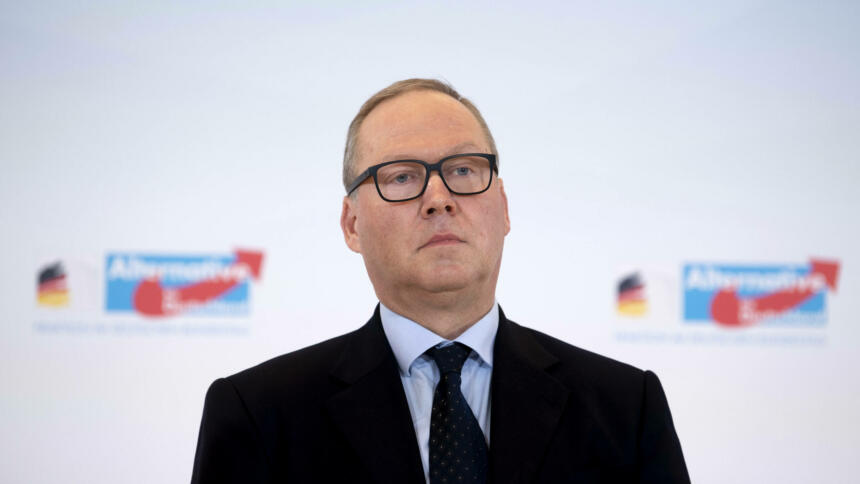Twitter would have preferred to say nothing at all about this delicate matter, it appears: In mid-February, we showed that the far-right candidate for the office of federal president in Germany, Max Otte, had violated the ban on election advertising on the platform. Only after repeated enquiries did Twitter finally officially confirm our research.
“The tweets you refer to violate our guidelines for political content”, Twitter spokesperson Christof Schmid said. The promotion of the content was stopped „as soon as it came to our attention.“
The case is further evidence of how social media companies struggle with political advertising. It comes at a time when the European Union is preparing to regulate the largely unregulated field by law for the first time.
Candidate promoted his tweet and profile
Max Otte is a publicist, former business administration professor and member of the long-time governing party CDU. In the latter, he was chairman of the far-right group Werte-Union; but party expulsion proceedings against him are currently underway.
Since January 25th, when Otte was presented by the right-wing party Alternative für Deutschland (AfD) as its candidate for the highest office in state, he tweeted several times about the issue on his Twitter account @maxotte_says. This was also the case on January 31st, when he explained in a tweet tagged with the hashtag #Bundespräsident [federal president] what qualities he deemed important for this position.
Otte promoted at least this tweet with Twitter’s „Promoted Ads“ function. This artificially increases the reach of a post or other content. Posts are marked as „Sponsored Tweet“ and are shown to people in their timeline who do not follow the creator.
Otte also had his profile promoted, in which he explicitly introduced himself as a „candidate for the office of Federal President in 2022“. In doing so, the account is suggested to other users as a follow recommendation. Even though Twitter generally prohibits any advertising of candidates for public office and elections, the content was advertised for several days.
Apparently no consequences for Otte
At the beginning of February, many Twitter users pointed out to the platform in their own tweets that Otte was violating the rules. Several users also reported the tweet via the platform’s reporting function. When exactly the company stopped advertising Otte’s content remains unclear in its response to our press enquiry.
However, the far-right politician will not have to fear further consequences. Twitter spokesperson Schmid merely refers to a FAQ on political advertising which states that the decision to exclude an advertiser depends on several factors. “Our decision to offboard any advertiser is based on a series of factors including, but not limited to, how many times the advertiser violates a policy, which policies they violate, and the time frame over which their violations occur.”
Twitter claims to review all ads before they are published. The company does not want to comment publicly on why the advertised tweets did appear and why the control mechanisms did not work. Twitter does not comment on whether further advertisements of the AfD candidate have violated the rules. The company is also keeping information on how much Otte paid for the sponsored content to itself.
Max Otte himself does not want to comment on the matter either. At first, he was not available because of „too many appointments“, since then he has not responded to our press enquiry at all.
EU wants to issue binding rules
The mistake will probably not have any consequences for Twitter either. The ban of advertising for political content on the platform is the company’s own decision. After recurring reports about misleading advertising and manipulative microtargeting, Twitter decided in 2019 to put a stop to it altogether, particularly considering the upcoming US presidential election. The potential damage seemed to be greater than the benefit, the risk uncontrollable.
The EU wants to change the fact that the framework conditions for political advertising on the internet have been shaped primarily by the platform companies themselves so far. In autumn 2021, it presented a proposal for a regulation that is intended to bring more transparency to online political advertising. Civil society experts such as Frederike Kaltheuner from Human Rights Watch told netzpolitik.org that this is urgently needed – and that the EU’s plans still do not go far enough.
More on this in the original article: „Gescheiterter AfD-Kandidat Otte: Verbotene Werbung auf Twitter” (in German)
Translation: Alexandra Conrad & deepl.com




0 Ergänzungen
Dieser Artikel ist älter als ein Jahr, daher sind die Ergänzungen geschlossen.